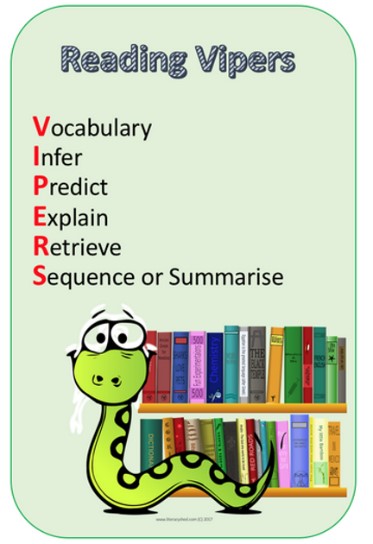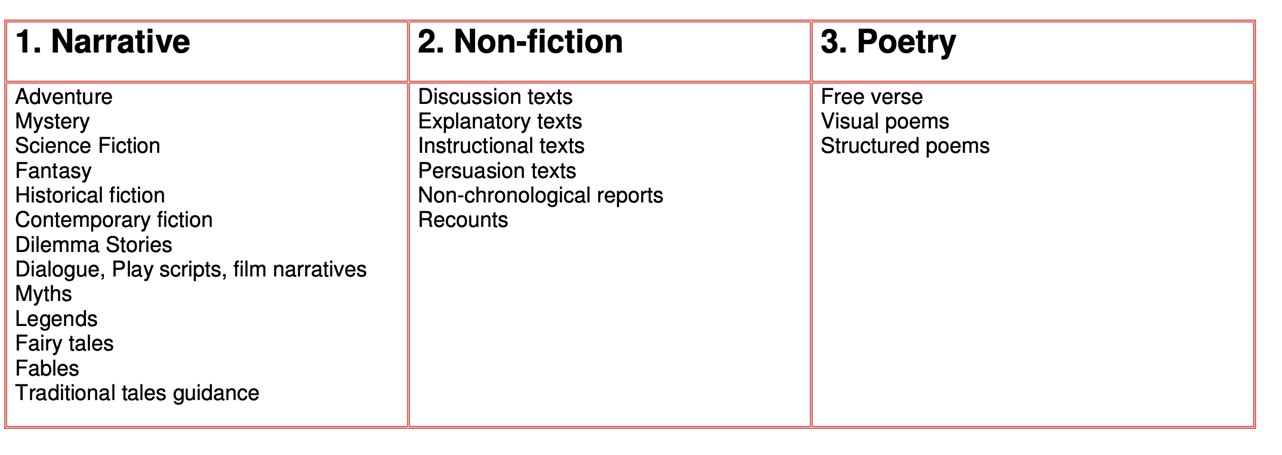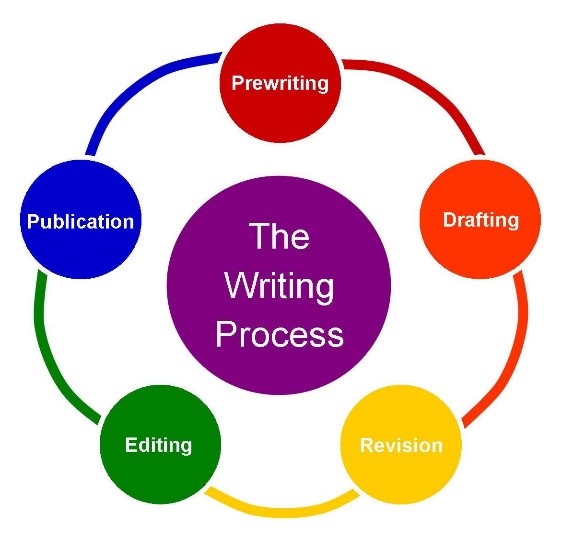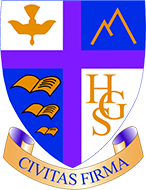English
English
Our aim at Holy Ghost is to provide children with the written and spoken language skills that are vital to their educational success. In line with the National Curriculum expectations, our English curriculum provides our pupils with experiences of real value, which develop their language. It enables them:
- to master important concepts and to think
- to engage in dialogue which communicates and deepens understanding
- to produce work of a highly creative and aesthetic quality, with correctly formed cursive handwriting
This involves:
- the acquisition of a wide working vocabulary

- clear expression of thoughts, using correct syntax, spelling and punctuation
- understanding the use of grammar in writing
- clear articulation of thought, with awareness of purpose and audience
- becoming a fluent, avid and analytical reader
- becoming a competent writer for a range of purposes
To create an environment of enthusiasm and engagement in learning, our pupils are exposed to a range of diverse, inclusive and high quality texts across the school. These texts are used to stimulate writing, as whole-class reading texts or simply read for pleasure.
Reading
At Holy Ghost we believe that lifelong learners are developed through a love of reading. We extensively promote reading across the curriculum. Opportunities to develop prosody, sight word recognition and vocabulary are woven across subjects through a rich and diverse range of fiction and non-fiction texts. Our aim is for all pupils, regardless of additional needs or background, to learn to read fluently as well as develop their reading for meaning and pleasure.
Reading in KS1
Reading in KS1 follows Little Wandle programme.
Reading in KS2
In KS2, we teach reading using the VIPERS approach - which is based upon the National Curriculum reading domains:
- Vocabulary
- Inference
- Prediction
- Explanation
- Retrieval
- Summarising
The six domains of reading are taught through whole class reading sessions. A class text is used and pupils are given opportunities to apply their reading knowledge and skills through verbal and written tasks. Each session focuses on a different reading domain. Question stems, similar to those used at the end of Key Stage tests, are provided to support pupils' learning.
Drop Everything and Read (D.E.A.R) is a time regularly set aside in the classroom schedule for both students and their teachers to "drop everything and read." During D.E.A.R time, children self-select the books they wish to read for pleasure and are encouraged to discuss, share and recommend books to one another. This time is crucial for developing ‘book talk’ inside the classroom and around the school.
students and their teachers to "drop everything and read." During D.E.A.R time, children self-select the books they wish to read for pleasure and are encouraged to discuss, share and recommend books to one another. This time is crucial for developing ‘book talk’ inside the classroom and around the school.
KS2 Catch Up

Any child in Year 2 or above who is not reading at age-related expectations needs urgent targeted support so they can access the curriculum and enjoy reading as soon as possible. Big Cat Collins is a banded book scheme that supports the teaching of reading. Pupils read in small groups, where targeted support is provided from a trained adult. Ongoing teacher assessment ensures all pupils are reading books at the correct level. These books are used alongside whole class reading sessions, enabling all pupils to access a range of quality texts at their reading level.
Writing
Our writing programme covers a broad range of both fiction and non-fiction genres and uses a range of stimuli.
 Our writing outcomes and focus are often linked to a range of cross-curricular topics and themes studied in History, Geography, Computing, R.E. and Science. Through our carefully planned and structured curriculum, pupils follow the writing process:
Our writing outcomes and focus are often linked to a range of cross-curricular topics and themes studied in History, Geography, Computing, R.E. and Science. Through our carefully planned and structured curriculum, pupils follow the writing process:
- Pre-writing

- Planning
- Writing
- Revising and editing
- Publishing
Our aim is that pupils to develop competence in both transcriptions (spelling and handwriting) and composition. Effective composition involves articulating and communicating ideas, and organising them coherently for a reader. Pupils will understand that this requires clarity and an increasingly wide knowledge of vocabulary and grammar. At Holy Ghost we believe purposeful writing is key, so pupils have many opportunities to write for a purpose closely relating to them.  Pupils are expected to develop fluent and legible handwriting that is consistent, even at speed. Our grammar teaching and progression follows the National Curriculum end of year expectations. This is taught in accordance with the text type being studied to allow pupils to apply their knowledge and skills in context.
Pupils are expected to develop fluent and legible handwriting that is consistent, even at speed. Our grammar teaching and progression follows the National Curriculum end of year expectations. This is taught in accordance with the text type being studied to allow pupils to apply their knowledge and skills in context.
Holy Ghost Grammar & Punctuation Progression guide
Spelling
Spelling at Holy Ghost is taught using the No Nonsense spelling scheme which provides clear, explicit and varied teaching of spelling rules and the strategies for learning words.
Please click the link below for more detailed information about the scheme.
For the Literacy Curriculum overview please click ion the document below:

